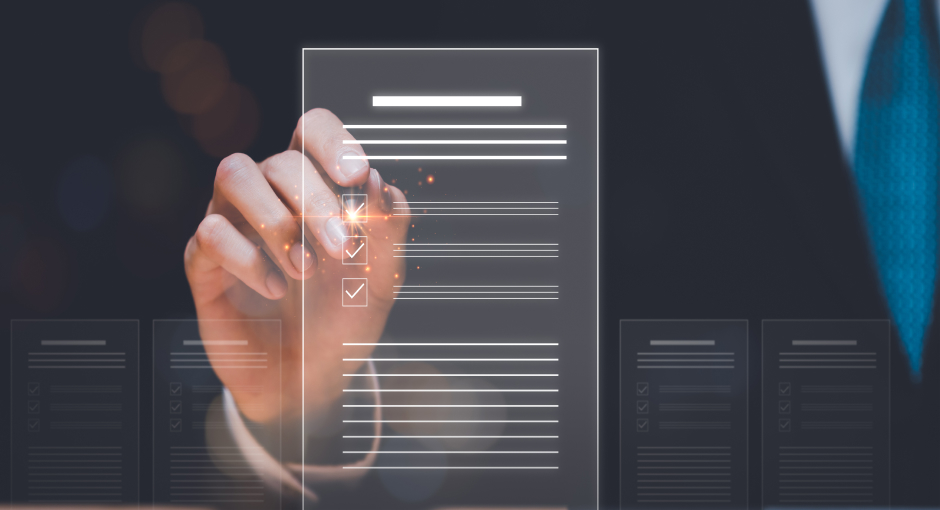How will new AI technologies shape the future of law? And how can legal professionals ensure that they adhere to legal ethics while they benefit from new technologies?
In part II of our new series, Filevine’s legal futurists Dr. Cain Elliott and Dr. Megan Ma, along with Senior Director of Product Alex McLaughlin, help lawyers answer these questions — and prepare for the future of their practice.
Missed part I, You can access the link below, and if you prefer to watch than read, view the full AI, Ethics, and Legal: A Deep Dive Into the Future of Legal Tech Webinar on YouTube
The issue of bias in AI has a multifaceted nature, and carries implications for ethics, the practice of law, and societal trust. Recently, Filevine’s experts sat down to explore the distinct interpretations of bias between technologists and legal professionals, emphasizing the need for a comprehensive understanding and proactive measures to address biases throughout the AI development lifecycle.
Defining Bias: Technological and Legal Perspectives
As Dr. Megan Ma demonstrated in a recent Filevine webinar, it’s important to clarify the concept of bias in AI discussions, given its broad and varied interpretations. Technologists view bias as computational statistical bias — a mathematical concept that refers to systematic deviations between expected and actual outcomes based on a specific set of inputs and data. On the other hand, legal professionals and policymakers perceive bias as implicit cognitive biases, behavioral biases, and discriminatory outcomes resulting from human choices throughout the AI development process.
The Dual Nature of Bias in AI Models

It becomes evident that AI models, as products of human creation, inherently reflect and potentially amplify biases present in their training data and decision-making processes. Computational bias stems from historical treatment and marginalization of certain groups, leading to systematic deviations in model outputs. Conversely, cognitive biases influence the selection of training data and decisions made during AI development, further entrenching bias in the system. Recognizing and addressing these biases throughout the AI development life cycle is crucial to minimize potential risks and ensure responsible AI deployment.
Navigating the Complexity of Fairness
The concept of fairness, closely intertwined with bias, also differs between technologists and legal professionals. Technologists perceive fairness as a process focused on how data is treated within AI models, while legal professionals consider fairness in terms of the outcomes produced by these models and the potential harm and discrimination inflicted on marginalized groups. Understanding these divergent perspectives is vital for developing effective measures that promote fairness in AI applications and mitigate discriminatory impacts.
Implications of Bias and Discrimination Claims

Companies utilizing or building AI models that produce discriminatory outcomes could face real consequences. Civil laws and statutes come into play, holding these entities accountable for the implications of biased AI systems. The vast training data used to create these models often carries inherent biases, despite efforts to mitigate them.
Consequently, the legal framework must adapt to address the challenges of applying existing laws designed for human decision-making to machine-generated outputs. One can draw an analogy to discussions surrounding liability in the context of self-driving cars, highlighting the need for new laws and regulations to determine accountability in AI-related scenarios.
The discussion on bias in AI illuminates the complexity of the issue, showcasing the disparities in interpretations between technologists and legal professionals. Recognizing the dual nature of bias—both computational and cognitive—is crucial for understanding the potential implications and risks associated with AI systems.
To ensure responsible AI practices, it is imperative to proactively address bias throughout the AI development lifecycle and implement fair and ethical standards. This necessitates collaborative efforts between technologists, legal experts, policymakers, and society at large to foster a more equitable and inclusive AI landscape.
Any Biases Ingrained in AI Systems Will Have Implications on Judicial Processes.
Recently, researchers at MIT tested how AI compared to human judges when it came to interpreting perceived violations of a given code. Despite utilizing reasoning that resembled human thought processes, the AI judge lacked empathy and understanding, leading to excessively harsh judgments.
This raises concerns about the suitability of AI in judicial decision-making and the potential ramifications of handing over such critical roles to AI systems. While the current state of AI does not resemble the dystopian portrayal of Judge Dredd, it underlines the importance of considering the limitations and potential biases of AI models in high-stakes scenarios.
Privacy, Ownership, and Intellectual Property in the AI Era:

AI also raises new legal concerns over privacy, ownership, and intellectual property. Sam Altman, the CEO of OpenAI, was recently questioned about AI's ability to create music similar to that of a well-known artist. His responses raised the question of whether AI-generated content infringes upon existing intellectual property rights.
In another concerning incident, ChatGPT inadvertently disclosed an individual's phone number, showcasing the risks associated with handling confidential information in AI systems.
Navigating Data Protections and Consent:
In the evolving landscape of generative AI, society needs robust data protections and consent mechanisms. While regulations like the General Data Protection Regulation (GDPR) and the recent AI Act in the EU provide control and transparency over user data, they may not fully address the challenges posed by the rapid advancements in generative AI.
The discussion on biases in AI and the complexities of privacy, ownership, and intellectual property rights reveals the intricate challenges that arise in the era of AI. The potential biases embedded in AI systems necessitate careful consideration when assigning them critical decision-making roles.
Simultaneously, safeguarding privacy, ensuring ownership rights, and navigating the evolving landscape of data protection require proactive measures and robust infrastructure. Addressing these concerns collectively will pave the way for responsible AI deployment and foster a balance between technological advancement and ethical considerations.
Stay tuned for future blog posts in this series, where we’ll explore the intersection of AI and legal malpractice, as well as other issues in AI, ethics, and legal.